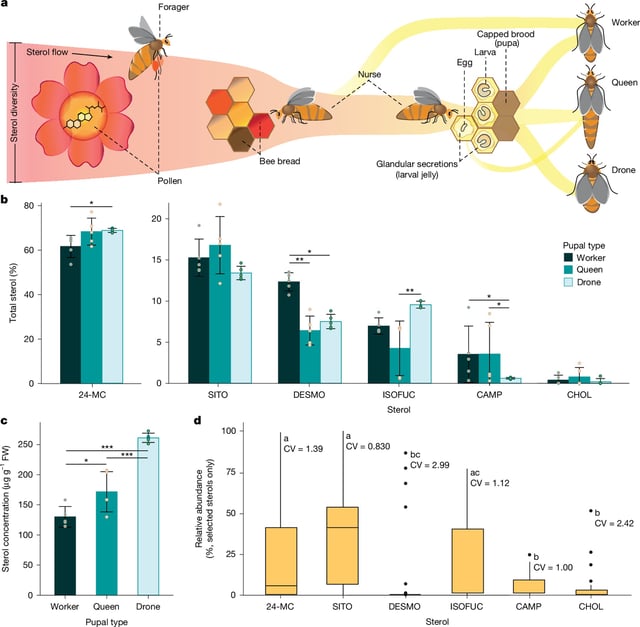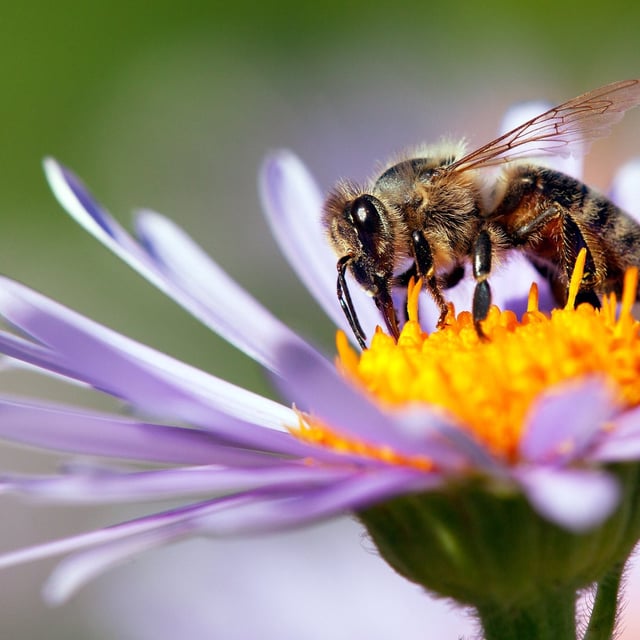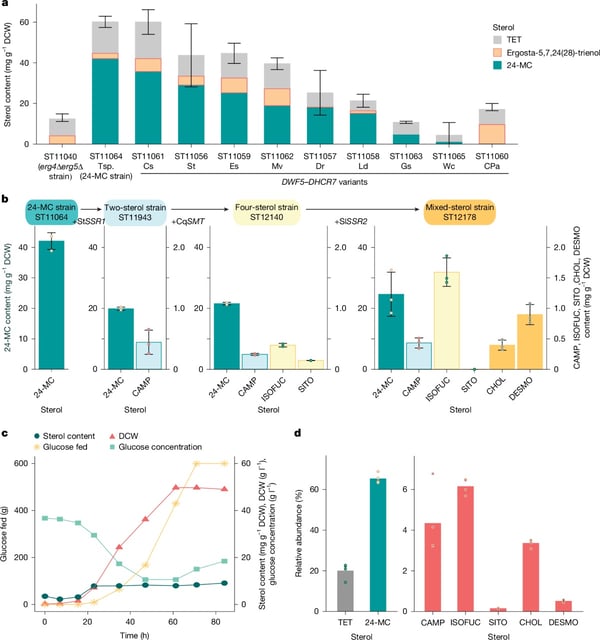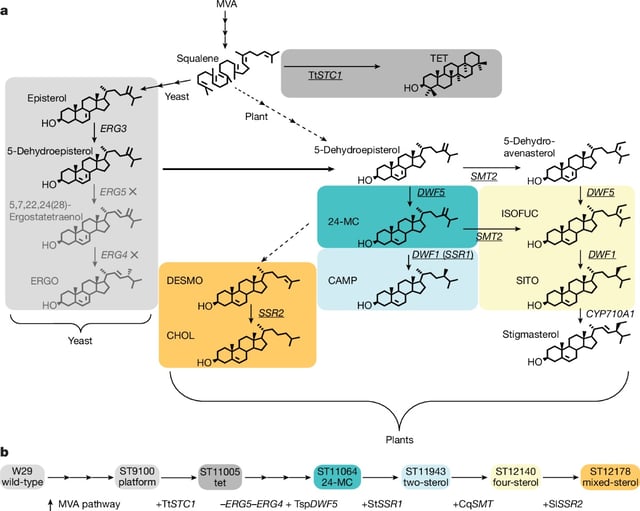Overview
- Researchers engineered the yeast Yarrowia lipolytica to synthesize a precise mix of six pollen sterols essential for honeybee development.
- In 90-day enclosed glasshouse trials, colonies fed the sterol-enriched diet reared up to 15 times more larvae to viable pupae than colonies on typical commercial feed.
- Colonies receiving the supplemented diet maintained egg laying and larval production through the end of the study, whereas sterol-deficient groups largely ceased brood production.
- The findings, led by Moore et al., were published in Nature, marking peer-reviewed validation of the nutritional intervention.
- The team proposes the yeast as a pollen substitute for beekeepers, with field performance, scaling, regulation, and any adaptation for other farmed insects still to be demonstrated.



